Bhatkal: An inter-faith get-together was organised on Thursday in Bhatkal as a part of millenary celebrations of Jamatul Muslimeen Bhatkal. Several key figures from different religions and beliefs attended the event.
Vartha Bharati editor-in-chief Abdussalam Puthige, All India Muslim Personal Law Board General Secretary, Moulana Khalid Saifullah Rahmani, General Secretary of All India Message for Humanity Forum, Moulana Bilal Hasani Nadvi, Basava Dharma Peetha, Kudalasangama Swamiji were present during the event as Chief Guests.
Speaking at the event, Abdussalam Puthige spoke about the importance of peace and communal harmony among different faiths in current scenario and pointed how it can be restored.
"If we have to become a proud country, it doesn't matter if we win lesser medal at Olympics, but what is important is we should have a crime-free, hate-free society, a society which is above communalism." He said.
AIMPLB General Secretary Moulana Khalid Saifullah Rahmani recalled the last sermon of Prophet Mohammed and spoke about the brotherhood and message of peace that Islam promotes.
He called on people to come out of religious lines to build a stronger society together.
"Humanity is the greatest relationship that we share with one another. Whenever one is in need we should all come together for the sake of humanity and help each other. That's how an ideal society can be built." He said.
Moulana Bilal Hasani Nadvi also spoke about spreading peace and harmony in the country and added that the diversity and exclusiveness of India need to be restored.
"India found glory only because of its unity and diversity. Today, the unity is being destroyed, the diversity has been marred by hate and communalism, we need to restore our lost glory,"
"The hate that is being spread today in this country, is posing greater threat to this country than any other enemy is posing today." He added.
Basava Dharma Peetha, Kudalasangama Swamiji lauded Islam for spreading peace and communal harmony for centuries and added that Islam essentially stands for peace and non-violence.
"Every religion bats for non-violence and peace, but today people are spreading hate and violence using religion as a medium. These are all political gimmicks.
"The politicians are targeting common people by visiting temples like Hindus, Mosques like Muslims and Churches like Christian and then triggering hate among people of these faiths only." Swamiji said.
"We can only become Vishwaguru by implementing principles of Constitution that was given to us by Ambedkar, merely by standing on podiums and calling out that we have become Vishwaguru wouldn't take us anywhere," he added.
"Those who offer Pujas and those who offer Namaz should not fight among themselves, only then this country can attain peace and harmony." He further said.
Managing Director of Hangyo Ice Creams also lauded the contributions of Nawayath Community in upliftment of the town and local businesses and Congratulated Jamatul Muslimeen Bhatkal on completing one thousand years.
Former Bhatkal MLAs Mankal Vaidya, JD Naik and otgers were also present during the event.
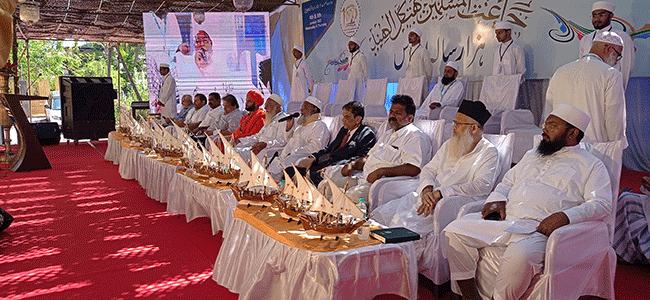
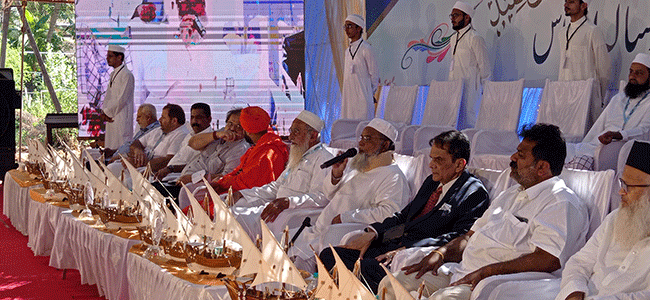
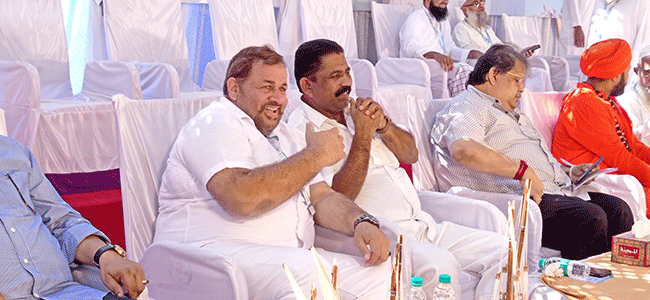
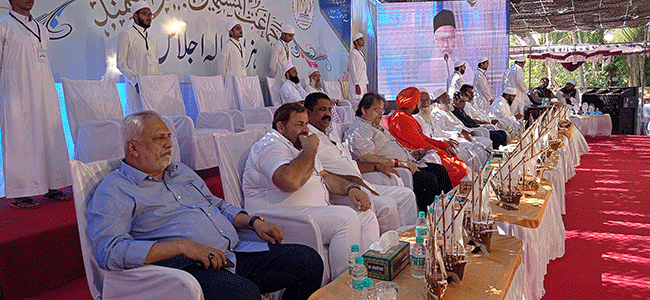
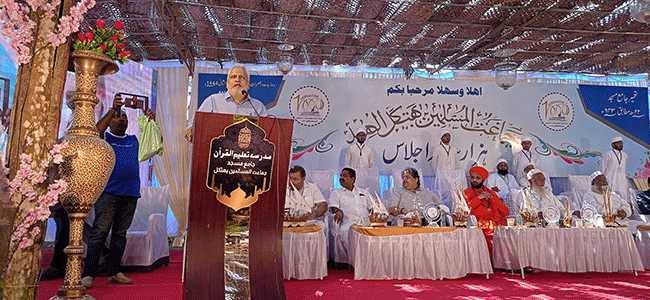
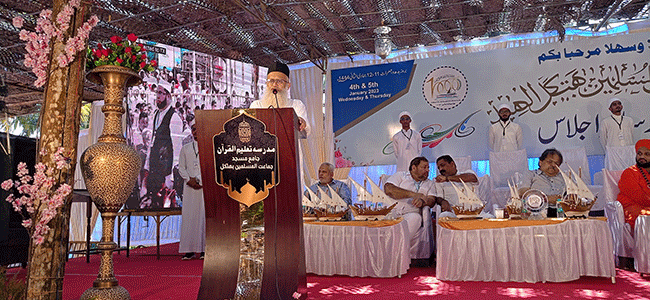
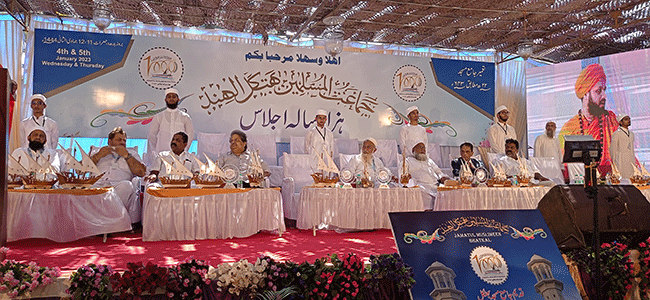
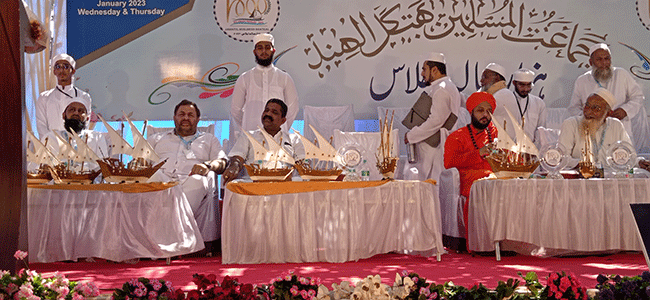
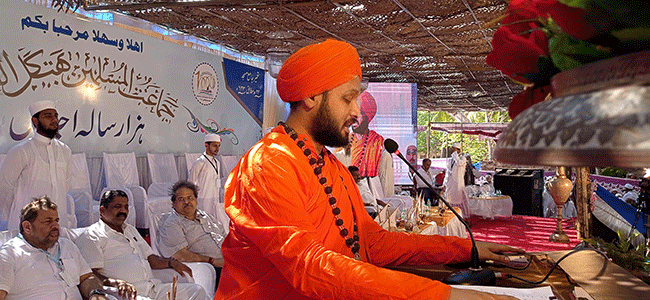
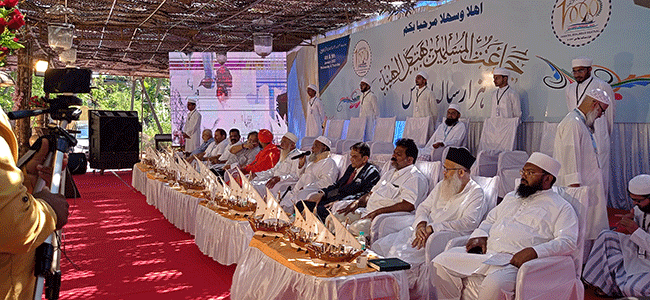
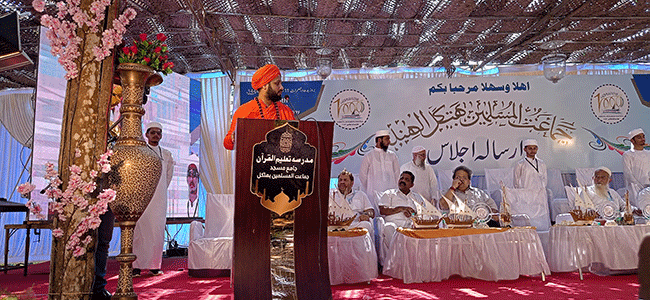
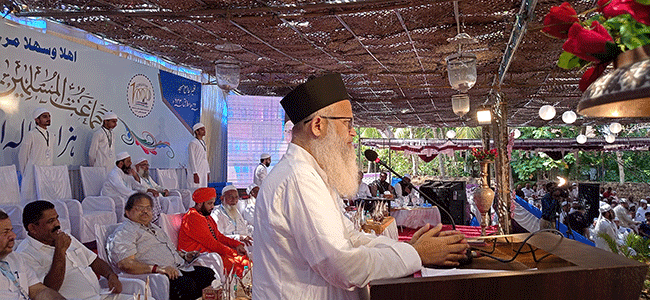
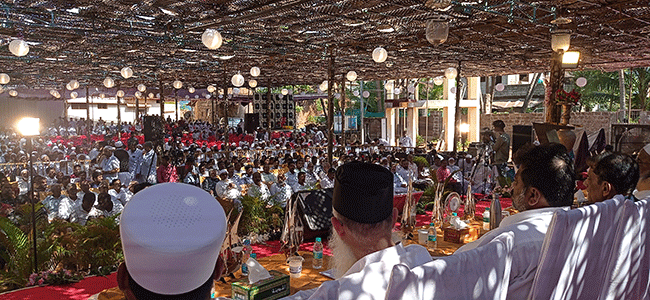
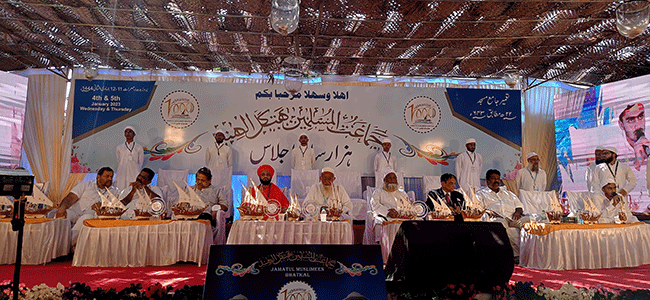
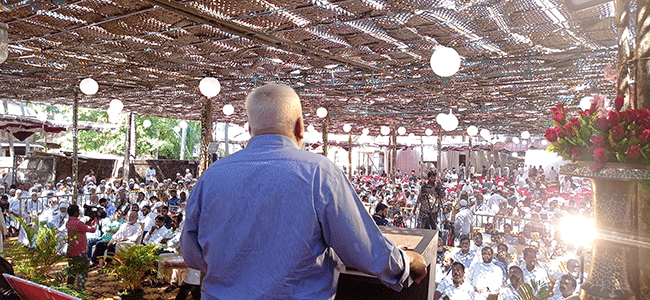
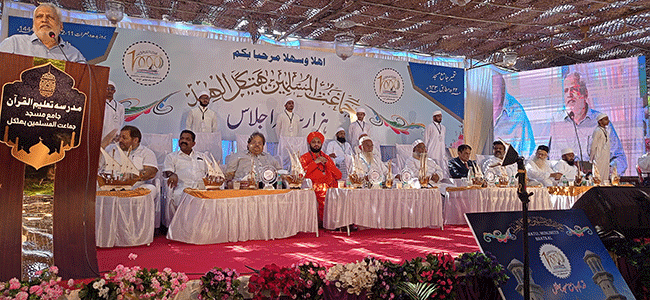
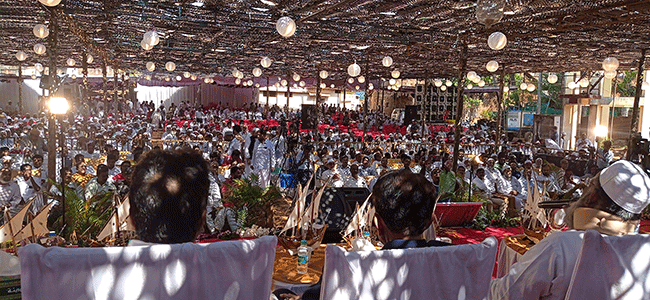
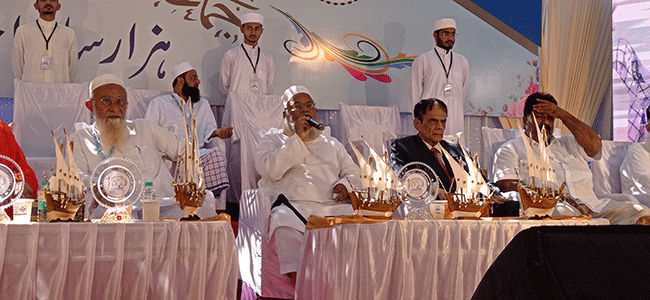
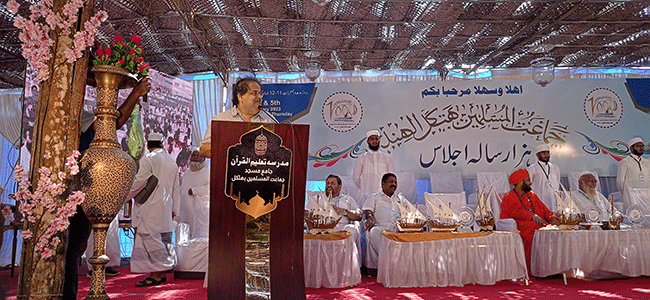
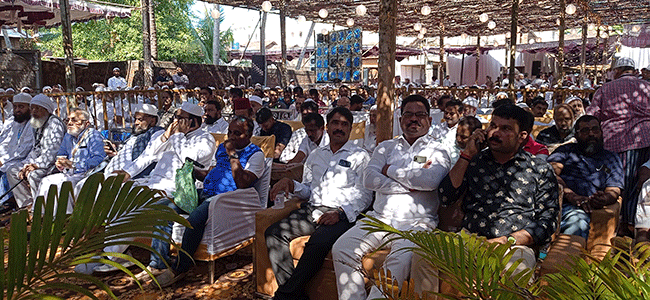
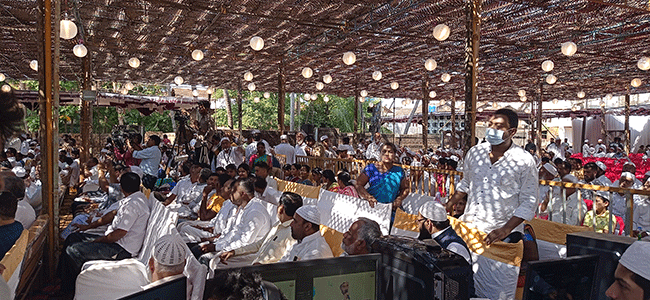
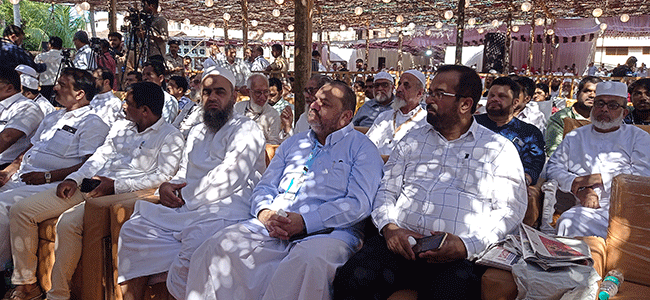
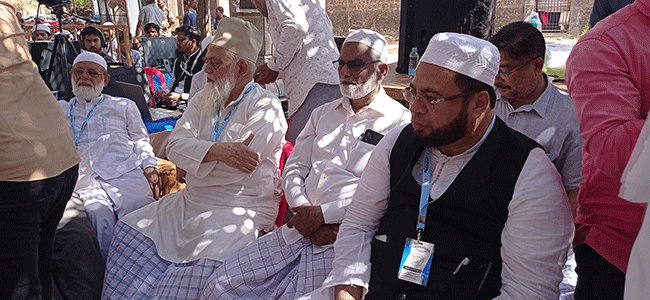
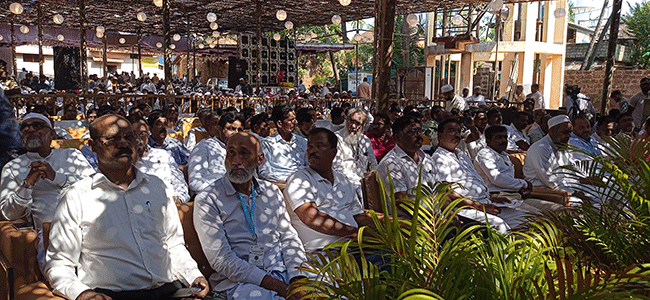
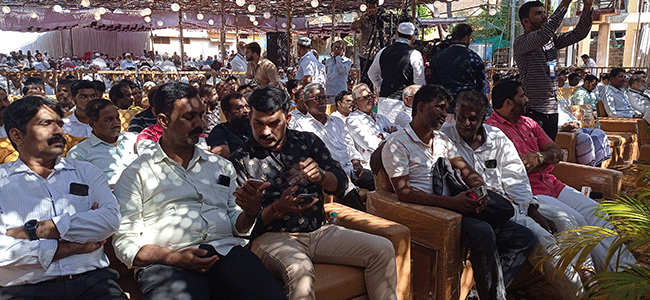
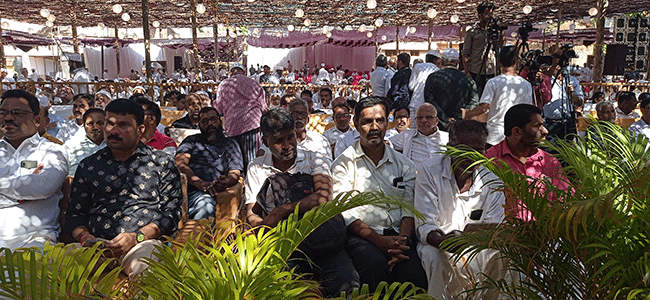
Let the Truth be known. If you read VB and like VB, please be a VB Supporter and Help us deliver the Truth to one and all.
Beirut, Nov 28: The Israeli military on Thursday said its warplanes fired on southern Lebanon after detecting Hezbollah activity at a rocket storage facility, the first Israeli airstrike a day after a ceasefire between Israel and Hezbollah took hold.
There was no immediate word on casualties from Israel's aerial attack, which came hours after the Israeli military said it fired on people trying to return to certain areas in southern Lebanon. Israel said they were violating the ceasefire agreement, without providing details. Lebanon's state-run National News Agency said two people were wounded.
The back-to-back incidents stirred unease about the agreement, brokered by the United States and France, which includes an initial two-month ceasefire in which Hezbollah members are to withdraw north of the Litani River and Israeli forces are to return to their side of the border. The buffer zone would be patrolled by Lebanese troops and UN peacekeepers.
On Thursday, the second day of a ceasefire after more than a year of bloody conflict between Israel and Hezbollah, Lebanon's state news agency reported that Israeli fire targeted civilians in Markaba, close to the border, without providing further details. Israel said it fired artillery in three other locations near the border. There were no immediate reports of casualties.
An Associated Press reporter in northern Israel near the border heard Israeli drones buzzing overhead and the sound of artillery strikes from the Lebanese side.
The Israeli military said in a statement that “several suspects were identified arriving with vehicles to a number of areas in southern Lebanon, breaching the conditions of the ceasefire.” It said troops “opened fire toward them” and would “actively enforce violations of the ceasefire agreement.”
Israeli officials have said forces will be withdrawn gradually as it ensures that the agreement is being enforced. Israel has warned people not to return to areas where troops are deployed, and says it reserves the right to strike Hezbollah if it violates the terms of the truce.
A Lebanese military official said Lebanese troops would gradually deploy in the south as Israeli troops withdraw. The official spoke on condition of anonymity because they were not authorized to brief media.
The ceasefire agreement announced late Tuesday ended 14 months of conflict between Israel and Hezbollah that began a day after Hamas' Oct. 7, 2023 attack out of Gaza, when the Lebanese Hezbollah group began firing rockets, drones and missiles in solidarity.
Israel retaliated with airstrikes, and the conflict steadily intensified for nearly a year before boiling over into all-out war in mid-September. The war in Gaza is still raging with no end in sight.
More than 3,760 people were killed by Israeli fire in Lebanon during the conflict, many of them civilians, according to Lebanese health officials. The fighting killed more than 70 people in Israel — over half of them civilians — as well as dozens of Israeli soldiers fighting in southern Lebanon.
Some 1.2 million people were displaced in Lebanon, and thousands began streaming back to their homes on Wednesday despite warnings from the Lebanese military and the Israeli army to stay out of certain areas. Some 50,000 people were displaced on the Israeli side, but few have returned and the communities near the northern border are still largely deserted.
In Menara, an Israeli community on the border with views into Lebanon, around three quarters of homes are damaged, some with collapsed roofs and burnt-out interiors. A few residents could be seen gathering their belongings on Thursday before leaving again.





